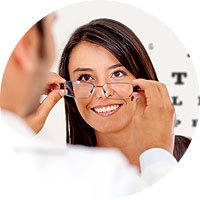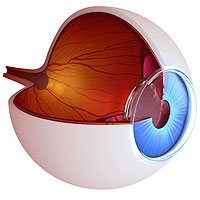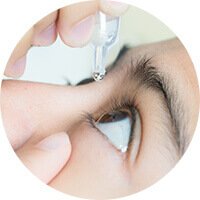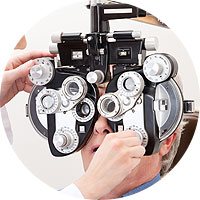Over the course of your life, you’ve probably heard about the importance of routine eye exams – whether it be from your parents, teachers or doctors. Here at Eye Care Specialists, we strive to provide patients with the care they need for healthy vision and happy lives.
Why Should I Attend Eye Exams?
Eye examinations are an important aspect of your overall health. Your routine eye exams are more than just annoying appointments you have to make every few years – they can be the difference between healthy eyes and serious problems. During these exams, your doctor will make sure your eyes are healthy, update your prescription and address any issues.
What Happens During an Eye Exam?
Eye examinations can be nerve-wracking, especially if you are going to a new eye doctor. At Eye Care Specialists, we believe knowing what will happen before an eye examination helps to relieve some of those worries.
- Visual Acuity Test. During this test, your doctor will measure the quality of that vision. Your eyes will be tested individually. You will be asked to look at a Snellen chart, which is comprised of random numbers and letters, varying in size. You will be asked you read these numbers and letters back to your doctor as small as you can go.
- Dilated Eye Exam. During this test, your doctor will use eye drops that cause your eyes to dilate. Once fully dilated, your doctor will get a good look at your retina. From here, your doctor can diagnose an array of issues such as diabetic retinopathy and age-related macular degeneration.
- Retinoscopy. A retinoscopy helps your doctor determine your eyeglass and contact lens prescription. Your doctor will shine a light into your eye and onto your retina to observe how light refracts inside of the eye.
- Glaucoma Testing. This test will measure the pressure inside of your eyes to ensure healthy intraocular pressure levels. Your eyes will be numbed, and an instrument called an applanation tonometer will gently touch the surface of your eye to measure pressure.
- Pupil Dilation. To better examine the inner structures of your eye, your doctor will use special eye drops to dilate your pupils. Once dilated, your doctor may look into your eyes using various instruments.
After your eye examination, if your eyes were dilated, you will notice your vision is blurry. It will take a few hours for your vision to return to its normal state. You should bring someone with you to drive you home.
How Often Should I Attend an Eye Exam?
From children age 3 through adulthood, everyone should have their eyes examined every year to be sure their eyes are healthy. The eyes are often an indicator of disease in other areas of the body so they can truly be the window to your soul. Of course, if you have conditions such as diabetes or other autoimmune conditions, you will be asked to come in more often. The same goes for those who have diagnosed eye diseases such as cataracts, glaucoma or age-related macular degeneration.
If you would like to learn more about routine eye exams, or if you would like to schedule an appointment with one of our doctors in one of our 8 convenient locations, please call Eye Care Specialists to schedule your routine eye exam.
Remember, the best medicine is prevention! Call 1-877-489-7405 for your routine eye exam.

















